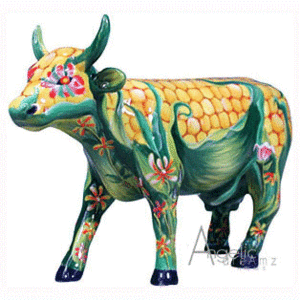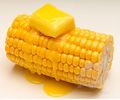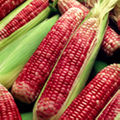Corn snake

|
NOT SAFE FOR PLANES!! |
| The snake you are looking at may not be plane safe! If Samuel L. Jackson saw this, claim that he did not look like a bitch. Otherwise, continue to read it until your serpentine urges are sated. Or not. |
| Corn snake | |
|---|---|
A corn snake breeder shows off one of her prize snakes. Note the docility, practically a comatose state, of this specimen. | |
| Scientific classification | |
| Domain | Eukaryota |
| Kingdom | Plantae |
| Class | Reptilia |
| Genus | Cornius |
| Species | C. snakus |
“These snakes are amaizeing!”
– Jungle Jack Hanna on Corn snakes
The corn snake (cornius snakus) is a snake that bears an uncanny, although completely superficial, resemblance to corn. This feature is thought by zoologists to aid in camouflage. Furthermore, the corn snake, unlike corn, is perfectly harmless unless eaten (upon consumption of a corn snake a human being must immediately began feeling around their teeth with their finger and tongue, attempting to remove the renments of the snake from between their teeth). Whilst commonly kept as pets, this particular species is still banned from transport on passenger airlines due to a tragic incidence of corn on a plane.
Adaptations
Corn snakes are medium sized snakes (i.e not as small as a little snake but not half as big as a really big tree). It feeds by sucking the sap out of corn plants and corn kernels, and although native to North and Central America, is now a common pest to farmers worldwide.
The corn snake in American Indian mythology
The following was roughly translated from an ancient American Indian tapestry found in a cave in what is now Arizona:
| “ | When Great Spirit made corn, she made corn snake to slither beside corn, in sky and ground corn snake and corn mingle spirits. To kill corn snake destroys season's corn crop, but to embrace corn snake as one would embrace a mate brings much rain and no locusts. Well, some locusts. So embrace often, and lay with all manner of corn snake, may the trees sing of this love and take vids of this embrace. | ” |
Totems from all across North and Central America bare witness that this attitude was shared by all tribes, and the term "snake", or "trouser snake", when used as a graphic physical reference, harkens back to this practice.
Fear and loathing of corn snakes

Historically, aside from the American Indian, many cultures have a deep fear of corn snakes. Their strange molting renmants, which resemble large leaves with tiny yellow strings attached, are typically avoided.
The fear of corn snakes may arise from a psychological fear of the male genitalia which, as every Mormon knows, develop yellow bumps and a bendable inner-core when stimulated.
Just as unexpectedly seeing a large spider elicits an automatic nervous-system response and a release of flight-or-fight chemicals, when a corn snake jumps out at someone or crawls across their face at a picnic (pictured) their brain releases hormones which trigger a desire to dip the snake in boiling water for 15 minutes.
Varieties
In their estimated 327 million years of existence, corn snakes have evolved into a huge number of varieties. For example, one common form, the popcorn snake, will protect itself when attacked by internally heating the water within its body, expanding in an instant to many times its normal size. This usually scares the predator off, although its arch enemy, the North American moviegoer (a noctural rodent who eats in the dark), will continue its attack and usually consumes its prey.
Here are some of the more common corn snakes, compiled and photographed by the Reptilian Department of the University of Arizona:
Corn snake attacks

Bites by individual corn snakes do little harm, and the snakes themselves are easily detected and knocked aside with a whisk of a hand, paw, or tail. It is only when corn snakes swarm a victim that the danger of extreme itching occurs.
Corn swarm, the common term for an attack by multiple corn snakes, is rarely seen and has been photographed only three times: In 1903, during a swarm on an anteater; in 1977, when a cow was swarmed in India, and that one time they swarmed a gibbon.
In popular culture
- The corn snake was on the national flag of Kuwait until 1961, when Kuwait was stolen from Iraq and got a little more serious.
- The 1840s song, Jimmy Crack Corn, tells of an American slave who breaks the spine of a corn snake while laying around the porch of the big house. His master done gone away, so neither Jimmy nor the nosy and intruding onlookers don't care about the corn snake. This shows the indifference slaves held towards the animal kingdom in general, and corn snakes in particular. The original lyric, "Jimmy Crack Corn and I don't give a fuck", offended one of the slave women, Dorthea Fuck, and was changed to "and I don't care".

















